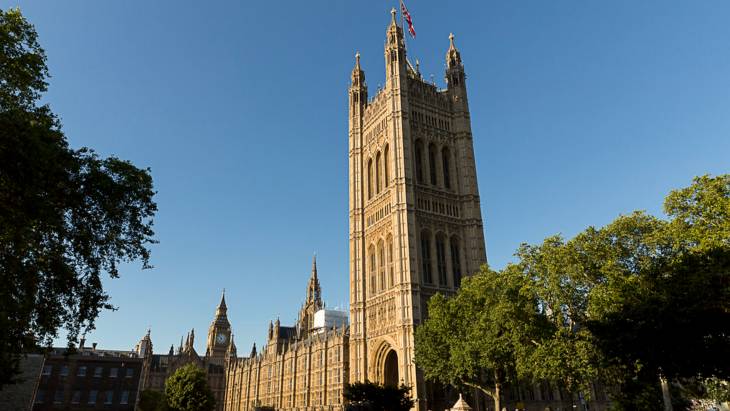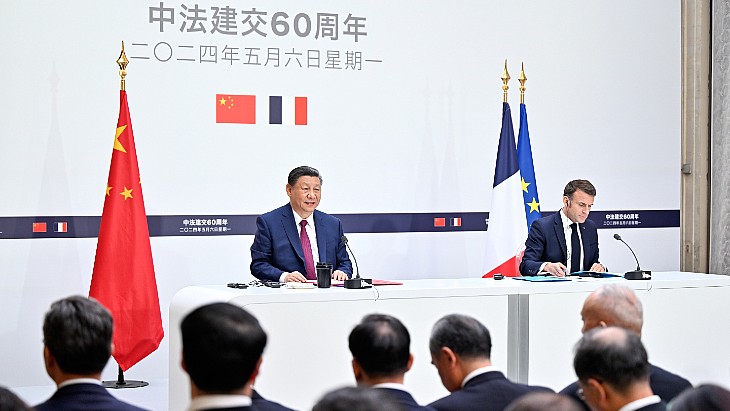House of Lords considers UK nuclear financing plan

Members of the House of Commons last month gave their approval for the measures, which would bring in a regulated asset base (RAB) funding model which the UK government thinks will lower the cost of finance and mean investors share some of the project’s risks with consumers.
The bill also seeks to remove barriers to private investment - such as from pension funds - and in doing so "reduce the UK’s reliance on overseas developers for finance".
The UK government's case for change
Lord Callanan, a business and energy minister for the governing Conservative Party, said: "This legislation is vital in getting new nuclear projects off the ground and will help the UK meet its decarbonisation targets.
"With all but one of the UK’s current nuclear reactors scheduled to close by 2028, representing 85% of our existing nuclear capacity, the need for new nuclear projects is more urgent than ever."
The UK government is aiming to bring at least one large-scale nuclear project to a final investment decision by the end of this Parliament (by the end of 2024) and has also been supporting the development work for small modular reactors (SMRs).
Callanan said that by bringing in private investors the UK would be able to "widen the pool of available finance for new projects" which, he said, would "take us away from reliance on single developers financing new projects at their own risk, something which has contributed to the cancellation of recent projects at Wylfa and Moorside".
He added: "Nuclear power will need to play a significant role in the UK’s future energy mix to ensure reliable, low-cost, low-carbon power as we transition towards net zero."
The proposed funding change explained
Under the existing mechanism to support new nuclear projects - the Contract for Difference (CfD) scheme - developers have to finance the construction of a nuclear project and only begin receiving revenue when the station starts generating electricity. The CfD approach was used to finance Hinkley Point C, with the developer agreeing to pay the entire cost of constructing the plant, in return for an agreed fixed price for electricity output once the plant is online. However, this approach places the entire construction risk on developers and led to the cancellation of other potential new build projects, such as Hitachi's project at Wylfa Newydd in Wales and Toshiba's at Moorside in Cumbria.
Under the RAB model a company receives a licence from an economic regulator to charge a regulated price to consumers in exchange for providing the infrastructure in question. Most recently, the RAB model was used to successfully finance the construction and operation of the Thames Tideway Tunnel and Heathrow's Terminal 5.
What were the views from members of the House of Lords
For the opposition Labour Party Lord Rooker said he supported the bill, saying: "I do not think you can be taken seriously as a political party in 2022 if you are not in favour of civil nuclear power: it is as simple as that."
Lord Teverson, for the Liberal Democrats, the fourth largest party in the House of Commons, who oppose the bill, said he was sceptical about the need for new nuclear development, citing nuclear waste and costs.
He added that if he was in favour of nuclear power he would advise the government to "go down the Korean route: you build a fleet of 20, you get your economies of scale and you finance it through the public purse which has minimum interest cost … probably the only way you can make nuclear power successful in the modern world".
Baroness Neville-Jones, a Conservative former security minister, said: "We need to get it on the statute book as soon as we can, with early commencement, so that the detailed work on financial flows via the RAB model can go ahead, with some prospect of Sizewell and other possible nuclear sites coming on stream in a reasonable timescale.
"The truth is that this country is not going to achieve its statutorily embedded climate change goals of net-zero by 2050, nor the decarbonisation of electricity production by 2035, without a contribution from nuclear energy generation, which, as has also been said, is at the moment declining.
"I know there is a big divide on this issue, but it is not just the government who say we need it; so does the Climate Change Committee. We need the contribution of nuclear-generated power. Frankly, Parliament cannot deny the means to the end that it has ordained."
Lord Ravensdale, an independent member of the House of Lords who is an engineer and project director in the nuclear industry, said the bill should include provisions to make hydrogen produced from nuclear energy eligible for the renewable transport fuel obligation, alongside other low-carbon sources.
"A simple change, adding nuclear-derived hydrogen to the list of zero-emissions sources defined by the Energy Act 2004, could unlock millions of pounds of private investment into hydrogen production in the UK and accelerate the Government’s hydrogen production targets, while also supporting the nuclear industry," he said.
The Green Party’s Baroness Bennett restated her party’s long-term opposition to new nuclear power, and said that nuclear was "crowding out other opportunities and ways of dealing with our climate emergency and poverty crisis" such as, she said, renewables and energy efficiency.
Lord Howell, a Conservative, welcomed the bill but noted the delays to the EPRs at Okliuoto in Finland and Flamanville in France and what that means for Hinkley Point and the proposed "replica" at Sizewell C: "Are investors ever going to wait that long for payback … do we plug on with these mammoths at Wylfa, Moorside, Oldbury and Sizewell or turn all our efforts to small and more advanced nuclear power plants?"
Labour’s former security minister Lord West, said: "Why are we in this position? It is because of the failure of successive Governments, as has been mentioned. It is a national disgrace, actually. We have gone from being the world leaders in civil nuclear - we made masses of money exporting this stuff to Japan - to a position where we cannot build even one of these large reactors ourselves.
"Basically, we need to pull our finger out and get going on this. Sizewell C and Hinkley Point C are absolutely necessary. Looking to the future, we absolutely have to go for SMRs, AMRs and the use of hydrogen. This can all be encapsulated somehow in this. I think we would all agree with that."
Lord McNicol said that the Labour Party would support the bill in the House of Lords but suggested they would like it to "mandate nuclear stations to use UK-manufactured fuel and stick to UK consumer charges".
How the minister responded to the issues raised
Business and energy minister Callanan, responding to the issues raised, said that the new funding mechanism would allow foreign investment, but "not at the cost of national security". He said that on the issue of radioactive waste, good progress was being made in the process "to identify a suitable location for a geological disposal facility".
Although there had been issues with the first wave of EPRs, he said, "developers have learned lessons". The minister also stressed that, in response to those asking about SMRs, the new funding model could be applied to them, and not just larger nuclear power plants.
What happens next?
The bill has already passed through the House of Commons. The House of Lords is a revising chamber in the UK Parliament, with about 800 members, the vast majority of them appointed for life but there are also 92 members who inherited their place from their father, and 26 Church of England archbishops and bishops.
Although the bill was backed in principle, it has now gone for detailed scrutiny in a Lords committee. If the bill is amended in the House of Lords those changes will need to be accepted, or rejected, by the House of Commons before they can become law.










_88592.jpg)

